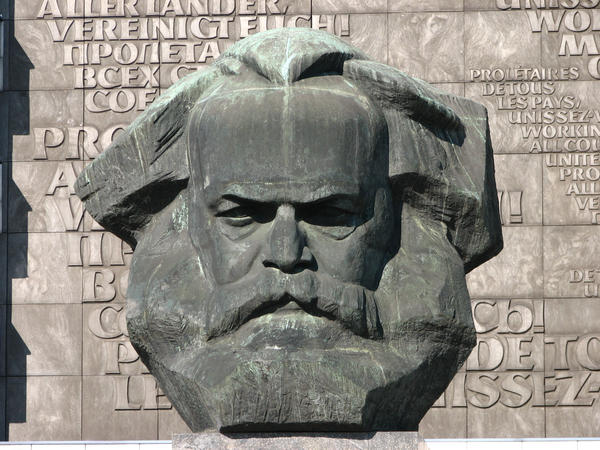|
Whoever picks up the first volume of Capital and begins to read, realizes, almost immediately, that its author is establishing, on a scientific basis, a colossal body of economic knowledge It is well known that in the monument that heads Marx's tomb, in the pedestal under his giant head, there is that thesis that stated that philosophers had only interpreted the world in different ways; when all it was about was to transform it. Whoever picks up the first volume of Capital and begins to read, realizes, almost immediately, that its author is establishing, on a scientific basis, a colossal body of economic knowledge. And like any monumental effort, he begins by defining the epistemology that will guide his endeavor. By this, he establishes what are called categories, and that natural scientists speak of variables that will be approppriate to what is being studied. After the definitions, come the theorems. And Marx did all this on the assumption that objective reality determined the rest of things, and did so, reality, in the ever-changing dynamics of its existence. We call this dialectical materialism, and if we are consistent with it, we will have to understand that, in science, truth is sought from reality and verified in it, not in more or less enlightened gatherings. Science is not done like the ancient Greeks, when materialism or idealism, equally, did not go beyond the realm of speculation, and the fate of the debate was determined by the charisma of those who debated there, or by the preparation of the opponents. The truth is that, apart from that, philosophy had not gone much beyond that state of affairs. Those close to him say that Marx immersed himself day after day, week after week, month after month, in the British library, rummaging through the accounting books of the companies. He sought, as the scientist he was, that objective reality that had been measured and reflected in the books in order to arrive at certainties from its analysis. And Marx was not a person who withdrew from controversy, but they, in their just social function, served to contrast the hypotheses that emerged and that ultimately had to be confronted again with the data that reflected the reality external to the subjectivity of individuals. On March 14, Marx was declared dead. Since then, the act of killing him has occurred repeatedly, too many times, too few for his executors. However, the reality is that, when we stop believing in it, it remains in front of us. The consecutive act of eliminating it only speaks of the systemic failure to achieve it. I dare to assert, against the evidence of the image, that Marx's head on the Highgate pedestal, smiles. Originally Published in Granma Archives March 2023
1 Comment
Charles Brown
3/30/2023 12:42:15 pm
Well said
Reply
Leave a Reply. |
Details
Archives
July 2024
Categories
All
|

 RSS Feed
RSS Feed